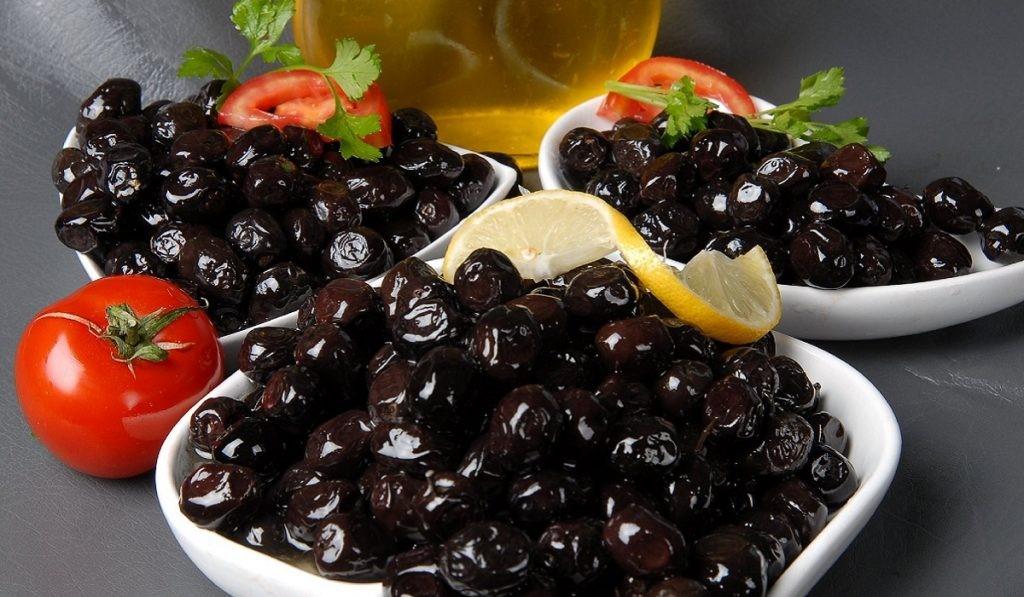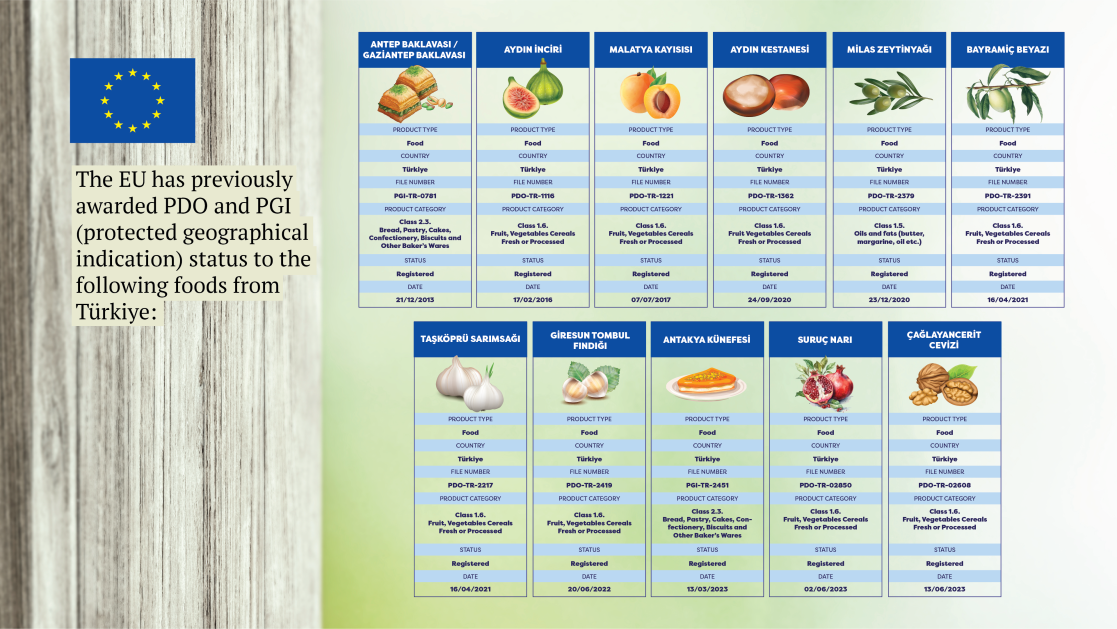“Gemlik Zeytini” olive of Bursa wins EU recognition

The small to medium sized “Gemlik Zeytini” is a table olive with colour from claret red, darkish brown to black, characterised by thin skin, thick flesh and small and roundish stone. It differs from other olives grown in Türkiye, with a smooth, moisty and highly aromatised flesh, round fruit shape, small stone, hard texture, high fruity aroma and low bitterness and acidity tastes. Its flesh easily separates from its stone. The skin in the mouth is not felt while it is being eaten because the thin skin of the olive is tightly adhesive to the flesh. “Gemlik Zeytini” has high oil content.
According to the Head of the EU Delegation, Ambassador Nikolaus Meyer-Landrut, “Consumers know that they are getting a genuine product when they see the geographical indication logo. Registration by the EU brings wider recognition to products and their producers beyond Türkiye. So this registration will protect the ‘Gemlik Zeytini’, its producers and consumers and increase its recognition in Türkiye and Europe.”
The districts of Gemlik and Mudanya in Bursa have a reputation for olive cultivation and process from ancient times. Olive was produced in İznik and Orhangazi, in addition to Gemlik and Mudanya districts, for the navy and palace due to the excellent taste and quality of the black table olives during the Ottoman Empire.
Its processing method also has a reputation, and the name of the processing technique to get pickled olives is the "Gemlik style process". The olive is fermented in pools with water and sea salt, applying pressure with heavy stones and without using any additives with this style, in which the osmosis becomes faster. Thus, softening is prevented, and the texture of the olive becomes harder. In addition to the "Gemlik style process", the olive is processed by "Sele" style, firstly salted and packed after throwing out almost all its water called ‘sele’.

The “Gemlik Zeytini” is the first product registered by the EU as a geographical indication in Bursa, and this registration makes them so proud, according to Özden Çakır, Gemlik Commodity Exchange Chairman and an olive producer, conducted the application process.
“Olive is grown all over Türkiye, but ours is superior to others in the table olive category. Our olives are of very high quality. We will highlight this quality with the EU geographical indication and protect our olives from imitations. We will also find new markets in Europe,” says Özden Çakır, who conducted the application process.
One of those who conducted the application process is Prof Dr Sertaç Dokuzlu, the Uludağ University, Department of Agricultural Economics.
“‘Gemlik Zeytini’ is a perfect table olive. It is fleshy and has a very high oil content, uncommon in table olives. Processing it with natural methods without using chemicals is also a health advantage. The EU geographical indication may create new market opportunities abroad for ‘Gemlik Zeytini’ and producers with all these characteristics. It may increase the competitiveness of ‘Gemlik Zeytini’, a kind of black table olives, in the European market, where olive cultivation for olive oil is at the forefront, and in the world. Awareness of geographical indications by consumers in EU countries may also result in a potential increase in the premium price. Geographical indications give consumers a certain guarantee of quality and origin, which increases consumer confidence,” states.
Tamer Doğru, living in Gemlik Engürücük village, is another producer getting excited about the development.
“Our olives, having a different aroma, are delicious. ‘Gemlik Zeytini’ already has a brand value in Türkiye, but with the EU geographical indication, its European recognition and demand for our products will increase. Although only 25 per cent of the olives produced in Türkiye are ‘Gemlik Zeytini’, every olive is sold as ‘Gemlik Zeytini’. The EU geographical indication will protect both the producers and the consumers. By all means, consumers need to be more conscious and buy products with the geographical indication logo,” says.
Gemlik Commodity Exchange applied to the EU to obtain EU geographical indication.

The EU has previously awarded PDO and PGI (protected geographical indication) status to other foods from Türkiye: “Antep Baklavası / Gaziantep Baklavası”, “Aydın Kestanesi”, "Aydın İnciri", "Bayramiç Beyazı", "Malatya Kayısısı", "Milas Zeytinyağı", "Taşköprü Sarımsağı", “Giresun Tombul Fındığı”, “Antakya Künefesi”, “Suruç Narı” and “Çağlayancerit Cevizi”.
